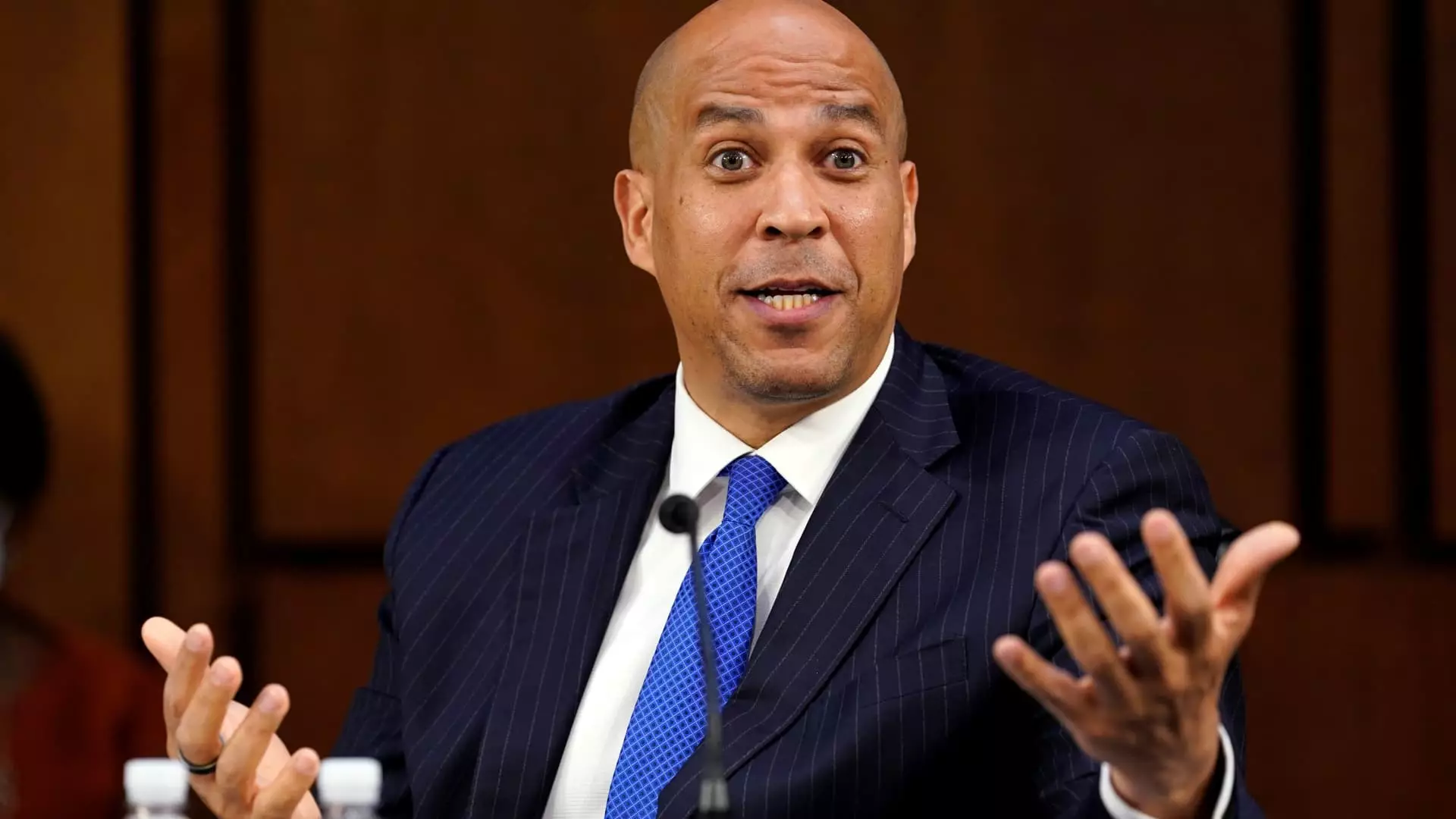In a politically charged landscape, the role of technology titans like Elon Musk often becomes a focal point of debate. Recently, Senator Cory Booker took a definitive stand against the tech mogul’s involvement in campaign contributions, advocating instead for a more active engagement in political discourse. This raises significant questions around the intersection of wealth, influence, and democratic integrity. While Musk has considerable financial clout, Booker’s insistence on rejecting his donations underscores a growing awareness of the dangers posed by letting wealthy individuals dictate political agendas.
Booker communicated his concerns regarding a GOP-backed spending bill that he deems “disastrous for our long-term economy.” This sentiment resonates on multiple levels; it encapsulates not only a critique of fiscal policy but also reflects a worry about the broader implications for social equity and responsibility. He challenged Musk directly, urging him not to simply remain a distant commentator on social media but to leverage his influence in a more constructive manner. This contrasts sharply with the image many have of billionaire “innovators,” perceived as detached from the harsh realities faced by everyday Americans.
The Stakes of the GOP Spending Bill
What’s at stake with this proposed legislation is not merely a set of budgetary adjustments, but the future of countless American families who rely on programs like Medicaid and food assistance. The bill includes provisions that would significantly reduce funding for these essential services while maintaining tax cuts primarily benefiting the wealthiest Americans—a policy likely to exacerbate income inequality. Booker’s passionate remarks illuminate the underlying theme of this struggle: a clash between fiscal conservatism and progressive social responsibility. Booker’s assertion that “average Americans are going to see their costs skyrocket” is not just a warning; it is a clarion call for awareness and action.
Moreover, the predictable tension between Musk and Trump only highlights the volatility within the Republican Party. Musk has emerged as a controversial figure, and his previous support for Trump’s campaign complicates matters. His recent criticisms of the spending bill—that he branded a “disgusting abomination”—speak to a growing discord, not just within individual relationships, but within the very fabric of the Republican coalition. The fact that the GOP is facing dissent from some of its most influential allies indicates that support for the party’s economically regressive policies may be waning.
Bridging Political Divides
Another dimension worth exploring is how strategic outreach could reshape political landscapes. Representative Ro Khanna’s suggestion to welcome Musk into a more aligned Democratic coalition underlies a pragmatic approach to political strategy: fostering cross-party dialogues with individuals whose ideologies may not entirely align with traditional Democratic values. This reflects an understanding that politics today is fluid and that leveraging uncommon alliances could yield beneficial results for communities.
Yet, it remains unclear if Musk is willing to translate his wealth and influence into meaningful action or whether he will continue to engage in binary political skirmishes from the sidelines. For those concerned with progressive issues, the imperative is clear: transformative action is paramount. As social media becomes a battleground for ideas, the reality of governance and its far-reaching effects often gets lost in the noise of hashtags and tweet storms.
Booker’s framing of the issue speaks to the need for a more engaged and informed populace. The notion that tech leaders can promote systemic change simply by voicing discontent online is insufficient. The real challenge lies in mobilizing resources, both financial and intellectual, towards advancing policies that lift all citizens rather than a privileged few. If the Democratic Party seeks to embrace not only individuals like Musk but the concerns that resonate with the American populace, it must push for genuine accountability and substantial engagement, moving beyond mere commentary into genuine activism.
While the political gamesmanship continues, the real victor should be the conscience of democracy. The current narrative is not merely a reflection of party lines; it’s a visceral clash over values, priorities, and the vision for America’s future. As decisions come to a head in Congress, Americans must remain vigilant, asking themselves what they truly desire from their elected officials and who they want to represent them in these challenging times.

